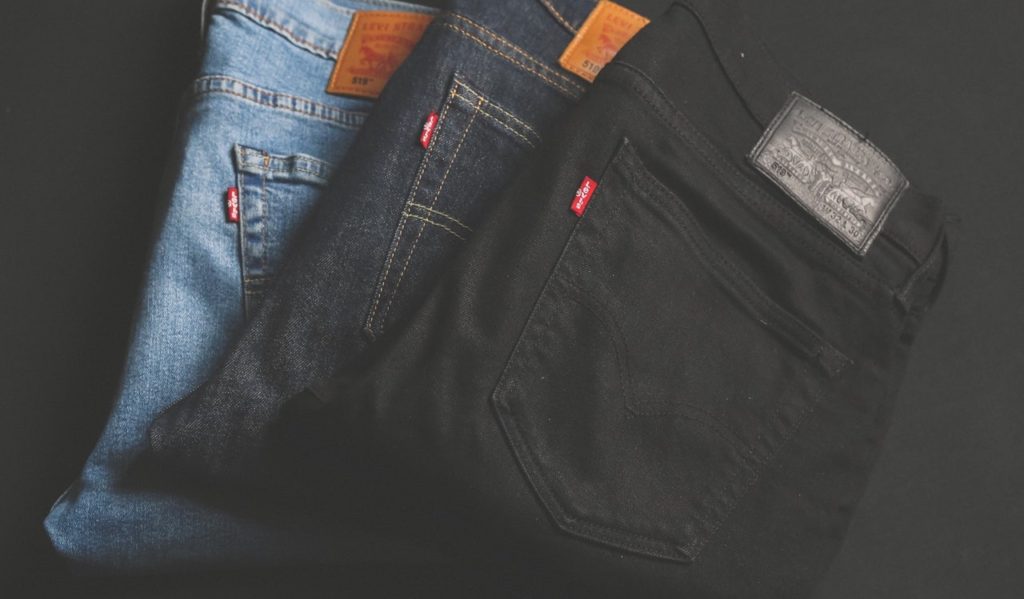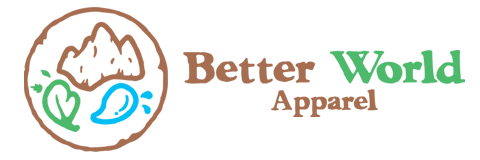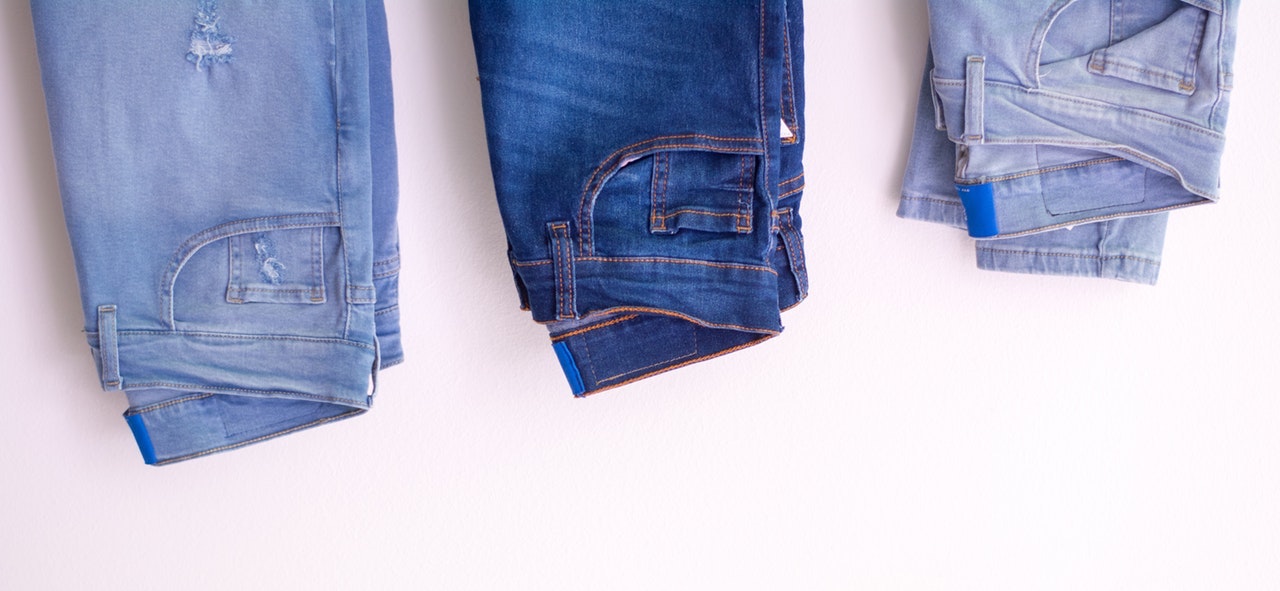Denim is a huge part of fashion. It’s sturdy, goes with just about anything, and can come in a variety of styles and colors. Unfortunately, though, denim is usually not ethical to produce. From the environmental impacts, such as water and chemical use, to the social impact, such as sweatshop labor and destroyed community resources, it is hard to produce sustainable jeans.
Why it’s Hard to Produce Denim Ethically
Denim starts with the cotton plant. In order for the cotton plants to grow and thrive, water must be used.
A lot of water.
From irrigation to fertilization, water plays a huge role in the process, but often is evaporated away before it is used. That’s the first main issue with denim.
Next comes the manufacturing. Manufacturing a single pair of jeans often use about 2 thousand gallons of water. Add in the harsh blue dyes that then often run off into community water sources, and it’s an environmental disaster. It hurts factory workers, local community members, and precious natural resources.
Finally, the last touches to “worn” or “washed” looking jeans often uses sand or harsh chemicals like silica, which is dangerous for factory workers. When companies risk the lives of workers for some garments, they aren’t thinking ethically.
Many companies hope to change all this, though, by changing the way they produce denim. There is still much work to be done, but there are a few simple ways brands can make jeans ethical.
Methods for Denim to be More Ethical
Changing the way denim is produced can radically reduce environmental and social impacts. Water usage, both in the growing and manufacturing processes, can hugely impact the sustainability of a pair of jeans.
One method to reduce water waste while growing is micro-irrigation, which helps water get directly onto the plant root and minimizes evaporation. Led by the Better Cotton Initiative, new methods of growing help to alleviate environmental impacts while helping farmers that produce the cotton.
Another way to help minimize water waste is by recycling water. In average, it takes about 1,500 gallons of water to make a pair of jeans. But, newer technologies help companies recycle close to 98 percent of water, significantly helping cut down on wasted water.
Another way for denim to be more ethical is to protect the workers, communities, and waterways that help create the jeans. A huge problem with denim production is the dyes entering the waterways. Often, communities around the factories rely heavily on these waters. By recycling water and using eco-friendly methods on dying and disposing of by-products properly, companies can ensure that waterways stay clean and prevent disease.
There are many companies that already use a number of the methods above to make more ethical jeans. Below, we have compiled a few of those brands, so you can look stylish while still be being sustainable.
Eco-Friendly Denim Brands to Fall in Love With

Levi’s
Levi’s is an American classic. The jeans they produce come in a variety of styles and washes. Whatever you are looking for in jeans, Levi’s is sure to offer it.
The brand is an industry leader, and it continues to improve in its efforts to become more and more sustainable. In 2011, Levi’s introduced Water<less, a program to help reuse 96 percent of the water used in the supply chain.
Not only do they strive to improve their company to be environmentally friendly, but they also keep in mind the social impact of jeans. While not Fair Trade-certified, Levi’s is continuously improving conditions for workers. The factories provide financial empowerment, health benefits, and family support.
Madewell Do Well Line
Madewell, as a company, isn’t the most sustainable. Their code of conduct and general business practices aren’t the clearest, and many of the denims they produce are not sustainable.
However, they do offer a line of denim that is both environmentally and socially impactful. Their Do Well Collection is a series of Fair Trade-certified jeans, made in an environmentally responsible way. Madewell also offers denim recycling to responsibly take jeans out of circulation.
While the brand has a ways to go before I would fully recommend them, I think it’s worth mentioning larger companies that are making strives toward sustainability.
Everlane
Everlane is a leader in sustainable, stylish fashion. Much like other big fashion companies, such as Zara and J. Crew, Everlane has a prominent following amongst millennial women. Unlike those other companies, the brand believes in radical transparency showing the cost to produce the item along with the price. That’s pretty cool in my opinion.
If you can’t see the problems in fashion’s supply chains, how can you hope to fix them.
Michael Preysman, Everlane Founder
Everlane designs their jeans to last. The factory, in which Everlane makes its denim, recycles 98 percent of the water used—way less than average. Not only is most of the water recycled, but Everlane also takes other initiatives to help reduce their carbon footprint even more. Simple steps, such as air-drying jeans, using solar panels, and using the sludge to help build houses in the community set this company apart.
DL1961
DL1961 leads the industry in sustainable denim. Beginning with the growth of the cotton, they only use Global Organic Textile Standard (GOTS) cotton. Plus, the other fabrics they incorporate into their denim all come from renewable wood sources that are biodegradable, making them part of a closed-loop system. Finally, they use laser technology to create a washed look, which is a safer process for factory workers.
DL1961’s premiere denim brand offers a wide selection of options for all your jean needs. They men and women sizes in a variety of styles, so you can be fashion-forward, as well as environmentally forward.
Warp + Weft
The brand utilizes several eco-friendly methods to make the perfect pair of jeans for any size. Warp + Weft uses water recycling to cut back on unnecessary water waste. In addition, they also use Liquid Indigo, which is the most eco-friendly indigo dye on the market.
On top of being environmentally sustainable, Warp + Weft strives for a strong social impact. They ensure the highest standards at their factory, as backed by the International Social and Environmental & Quality Standards. Plus, their biggest mission is to be an inclusive, body-positive shop. With eco-friendly jeans in women’s sizes 00-24, you are sure to find the perfect pair for you.
Monkee Genes
Monkee Genes promote supply chain transparency both in practice and through their support of Fashion Revolution. They recognise that to be ethical you need to focus on more than one aspect of production. Aiming to take an ethical approach at every stage of their supply chain from farm, to factory, to shop front.
They work closely with their factories to ensure safe working conditions and a decent living wage for their workers. Only using GOTS Certified factories.
The fashion industry’s impact on the world is far-reaching, and it’s important people recognise that.
Phil John Wildbore, MOnkey Genes founder
Bonus: Thrifting
So, this isn’t technically a brand, but thrifting for jeans is the most sustainable and ethical way to shop. Giving old jeans a new life means that no new resources go to waste, and it costs a fraction of the price. You can often find many styles and brands you would otherwise spend hundreds on for next to nothing.
With innovations and technologies today, it’s easier than ever to find ethical clothing brands. While jeans are hard to make ethical, many companies prove it isn’t impossible. By supporting these brands, we vote with our dollars and tell the fashion industry we want sustainability. So the next time you need a new pair of jeans, consider these eco-friendly brands.


 The 2020 Fashion Revolution Week
The 2020 Fashion Revolution Week
Leave a Reply